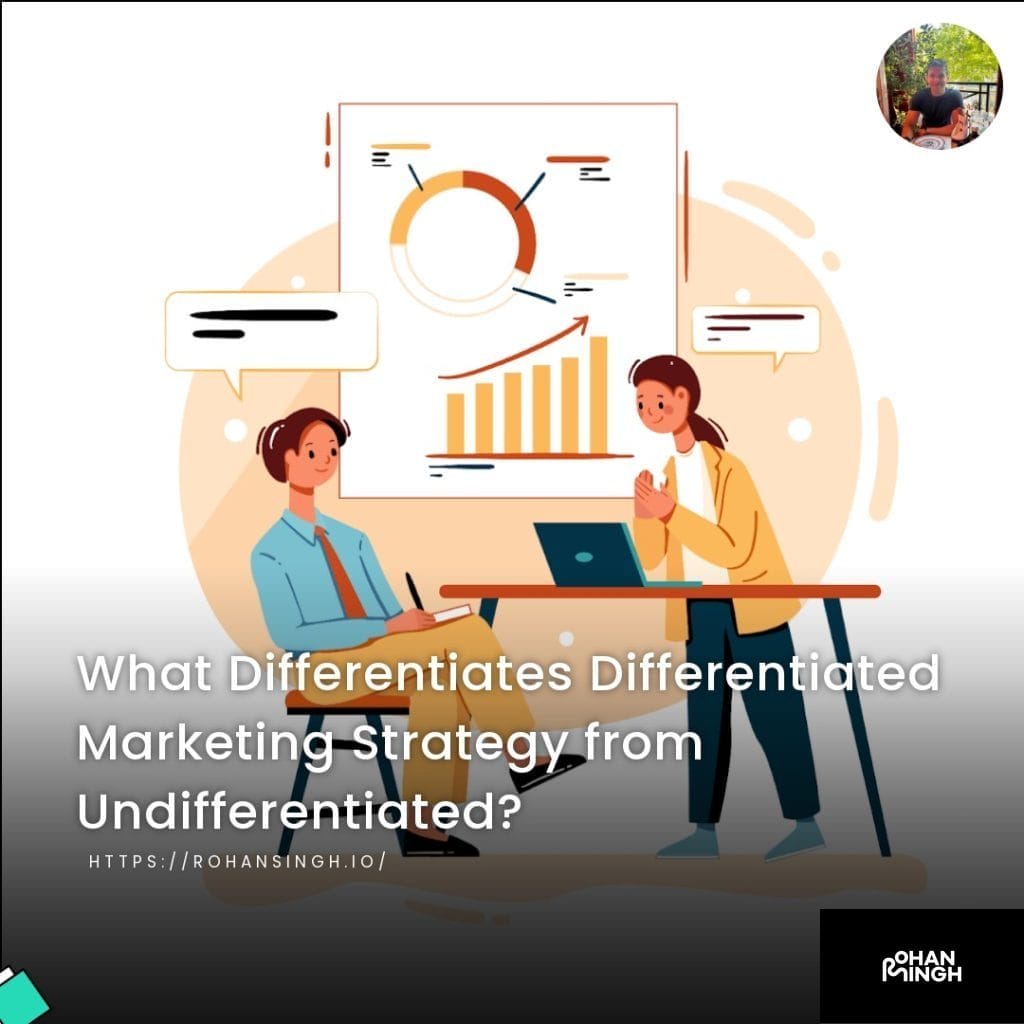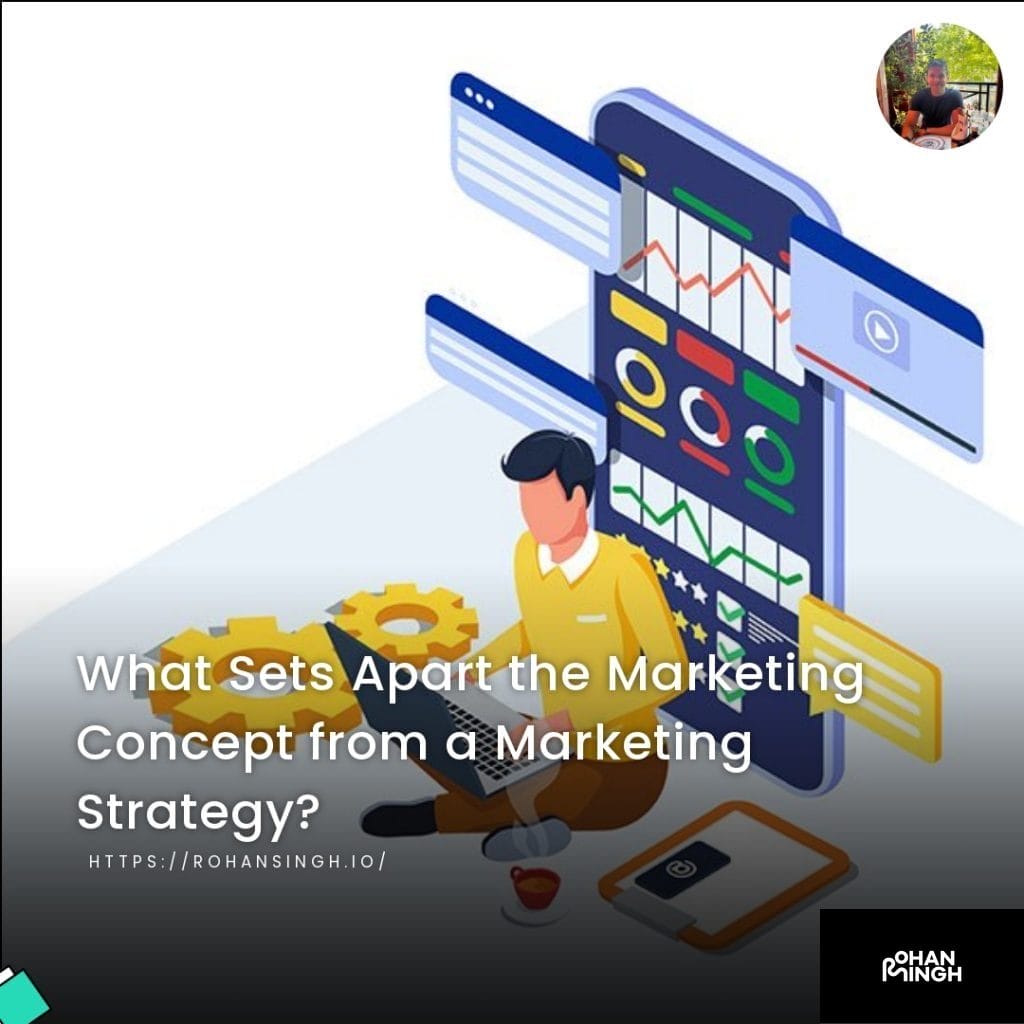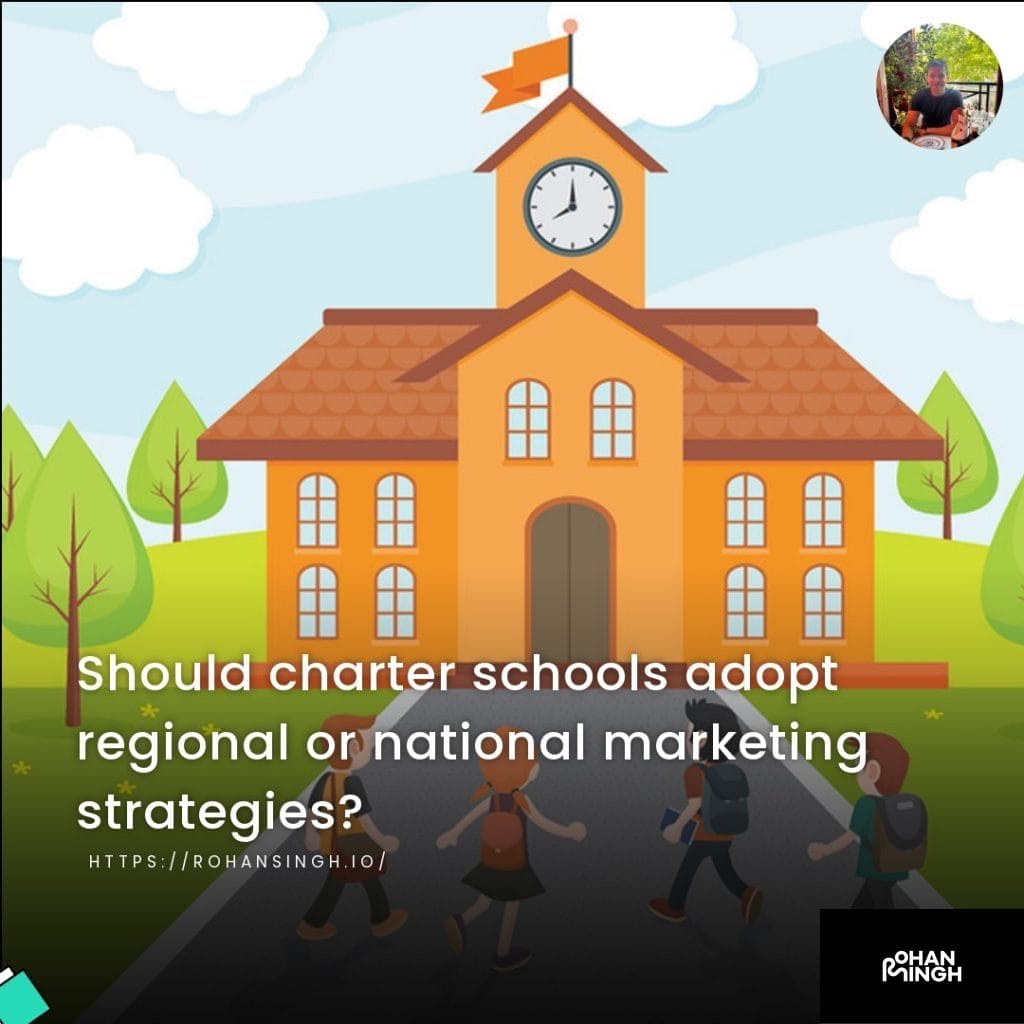Ready to Safeguard Your Content and Traffic from ChatGPT?
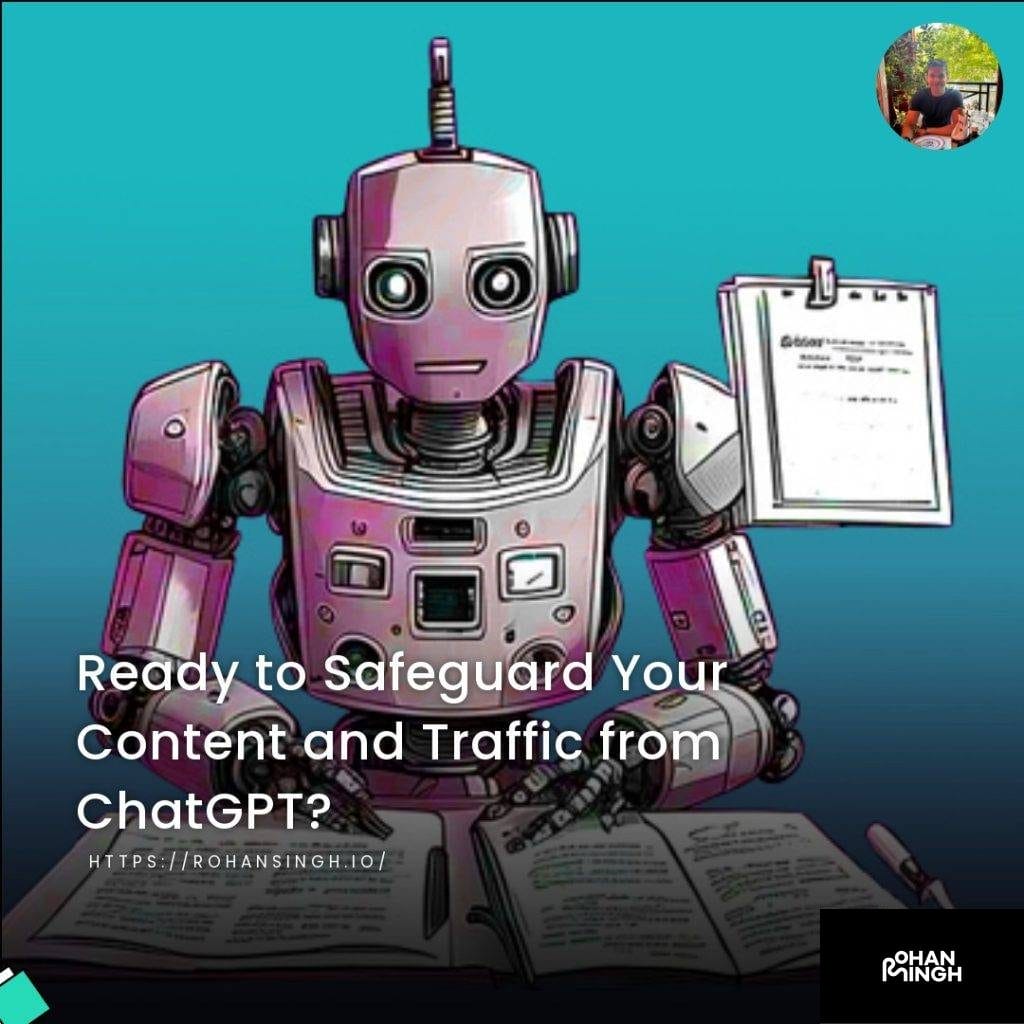
What is ChatGPT?
ChatGPT is a powerful language model developed by OpenAI, designed to generate human-like text responses based on the input it receives. It leverages a generative pre-trained transformer (GPT) architecture, making it capable of understanding and generating natural language. While ChatGPT is a groundbreaking tool that has revolutionized many aspects of online communication and content creation, it also raises concerns about content theft and potential negative impacts on search engine optimization (SEO) efforts. In this article, we will explore how to prevent ChatGPT from stealing your content and traffic, ensuring the integrity of your online business and maintaining a positive user experience.
Table of Contents
ToggleHow Does ChatGPT Affect Content & Traffic?
The rise of AI language models, such as OpenAI’s ChatGPT, has revolutionized various aspects of online businesses and content creation. However, this powerful tool also poses potential risks, particularly when it comes to safeguarding original content and maintaining website traffic. In this article, we will explore the impact of ChatGPT on content and traffic and delve into strategies to prevent unauthorized access and mitigate any potential losses.
The Threat of Content Scraping:
ChatGPT plugins have the ability to scrape the content of websites, leading to potential duplication issues and a diversion of organic traffic away from the original source. As search engines prioritize unique and quality content, websites may experience a decline in SEO rankings, resulting in reduced visibility and organic traffic.
The Fair Use Debate:
While some argue that ChatGPT’s use falls under fair use, the reliance of users on AI-generated content can have severe consequences for website owners. Ad revenue and commissions may be diminished as users increasingly rely on ChatGPT and other language models for information, eliminating the need to visit the original websites. This raises important questions regarding fair compensation for content creators and the sustainability of online businesses.
Preventing Content and Traffic Loss:
To safeguard your content and traffic, consider implementing the following strategies:
1. Regular Monitoring and Detection: Utilize browser plugins or third-party tools to monitor instances of language model-generated text on your website. Applications like Writer.com AI Content Detector can help identify and distinguish AI-written content from original human-created content.
2. Enhance Website Security: Protect your website from unauthorized access and cybersecurity threats by implementing robust security measures. Regularly update login credentials, perform penetration testing, and consider using residential proxies to prevent bad actors from scraping your content.
3. Educate and Engage: Maintain customer loyalty and trust by providing exceptional customer service and valuable content. Focus on creating original content that is not easily replicated by language models, emphasizing the unique perspectives and expertise that human creators offer.
While the adoption of AI language models like ChatGPT opens new possibilities, it is essential for website owners to proactively protect their content and traffic. By deploying effective safeguards, monitoring tools, and delivering quality and engaging content, online businesses can mitigate the impact of ChatGPT and continue to thrive in the digital landscape.
Let's talk about your future project!
Eager to collaborate on your upcoming endeavor? Let's explore and ignite the potential of your next big idea, shaping a promising future together!
Understanding the Issues and Threats of ChatGPT
The widespread adoption of AI language models, like OpenAI’s ChatGPT, has brought about significant advancements in online businesses and content creation. Nevertheless, it’s crucial to comprehend the associated challenges and potential threats to effectively safeguard your content and traffic. One major concern is content scraping, where ChatGPT plugins scrape website content, leading to duplicated information and a diversion of organic traffic away from the original source. This can hinder SEO rankings and result in reduced visibility and organic traffic. Additionally, the reliance on AI-generated content raises questions about fair compensation for content creators and the sustainability of online businesses. To address these issues, it is important to implement strategies that involve regular monitoring and detection with tools like Writer.com AI Content Detector, enhanced website security measures, and a focus on creating original, valuable content that cannot easily be replicated by language models. By understanding these issues and taking proactive steps, businesses can mitigate the threats posed by ChatGPT and ensure the protection of their content and traffic.

Unauthorized Access to Data and Information
Unauthorized access to data and information poses significant risks to businesses in today’s digital landscape. As AI language models, like ChatGPT, continue to advance, there is a growing concern about their potential to steal content and traffic. Protecting sensitive data is of utmost importance to safeguard online businesses from such risks and maintain customer trust.
Implementing robust security protocols is crucial in preventing unauthorized access. This includes limiting access to sensitive data only to those who need it, regularly conducting security audits to identify vulnerabilities, and continuously monitoring for any signs of breaches or suspicious activity. Additionally, partnering with trusted technology providers who prioritize data security can provide an added layer of protection.
It is also important to be cautious when using third-party plugins or applications that have access to your content and data. Ensure that these plugins come from reputable sources and have undergone rigorous testing to minimize the risk of unauthorized access. Regularly review and update access permissions to prevent any misuse.
Protecting your content and data is not just about complying with legal obligations such as copyright laws. It is about safeguarding your business, maintaining customer loyalty, and ensuring a positive customer experience. By prioritizing security and taking proactive measures, online businesses can mitigate the risks of unauthorized access and protect their valuable assets.
Poor Quality AI-Generated Content
Poor quality AI-generated content poses significant challenges for online businesses and negatively impacts the user experience. When AI models generate content that lacks coherence, relevance, or accuracy, it can harm a company’s reputation, decrease customer loyalty, and lead to a decline in search rankings.
One of the consequences of poor quality AI-generated content is a loss of trust. Users expect high-quality, valuable content from websites, and when they encounter poorly written or irrelevant information, it damages their perception of the brand. This can result in a decrease in customer satisfaction and an increased bounce rate.
Another issue is the potential for biased or misleading content. AI models may inadvertently generate content that favors certain perspectives or promotes misinformation. This can lead to detrimental effects on user trust and credibility.
To safeguard against poor quality AI-generated content, content marketers should prioritize the quality of their content and avoid relying solely on AI tools. While AI can be a powerful tool in content creation, it should be used as an augmentation rather than a replacement for human creativity and judgment.
Content at Scale AI Content Detection is one such tool that helps identify and bypass poor quality AI-generated content. By utilizing advanced algorithms and machine learning, this tool can detect instances of AI-generated content that may otherwise go unnoticed. It provides content marketers with valuable insights to improve their content quality and ensure a better user experience.
Ultimately, the responsibility lies with content marketers to prioritize content quality and use AI-generated content as a supplement rather than a substitute. By maintaining a balance between human creativity and the power of AI tools, online businesses can provide their users with high-quality, valuable content, enhancing customer satisfaction and maintaining a strong online presence.
Generative Pre-trained Transformer Language Model (GPT) Misuse
The Generative Pre-trained Transformer Language Model (GPT) is a sophisticated AI model that has gained significant attention in recent years. One of its most notable iterations is GPT-3, developed by OpenAI. This predictive text model is trained on massive amounts of data from the internet, allowing it to learn intricate language patterns and generate human-like text.
While GPT-3 has the potential to be a powerful tool for various applications, its misuse can have severe consequences. One concerning aspect is its application in chat systems, where it is known as ChatGPT. This technology allows users to interact with the AI-generated text in real-time, making it convenient for customer service, content creation, and other online businesses.
However, the unregulated use of ChatGPT may lead to unethical practices, such as content theft and traffic diversion. By generating text that mimics human writers, ChatGPT can attract traffic and potentially steal content from original sources. This poses a significant challenge for online businesses and content creators.
To safeguard against the potential misuse of GPT and ChatGPT, it is crucial to implement proactive measures. Content creators should consider using content detection tools or browser plugins that can identify AI-generated content and protect against content theft. Writer.com AI Content Detector is one such tool that helps identify instances of AI-generated content, ensuring that original content is protected.
Furthermore, implementing robust cybersecurity measures can prevent unauthorized access to AI models and protect against bad actors seeking to exploit the capabilities of GPT for their benefit. Regular penetration testing, secure login credentials, and compliance with copyright laws are essential steps to mitigate potential misuse.
While GPT and ChatGPT have immense potential, it is crucial to prioritize ethical use and take active steps to safeguard against their potential misuse. By implementing content theft protection measures and maintaining strong cybersecurity practices, online businesses can ensure the integrity of their content and protect their digital assets from unauthorized use.
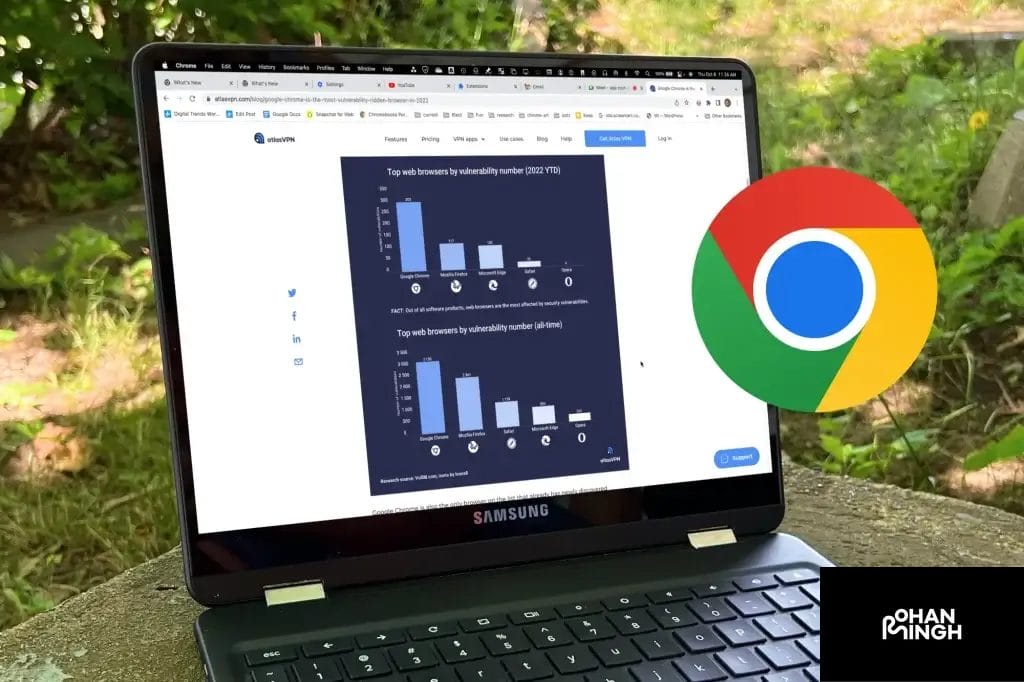
Third-Party Plugins and Browser Extensions Vulnerability
Third-party plugins and browser extensions can potentially pose a vulnerability when it comes to the use of ChatGPT. These plugins and extensions are often designed to enhance the functionality of websites and browsers, providing additional features and services to users. However, they can also introduce security risks that can compromise the security of a website and lead to the theft of its content.
One common vulnerability is the unauthorized access these plugins and extensions may have to the user’s browsing activity and data. In the case of ChatGPT, this means that a malicious plugin or extension can potentially gain access to the AI-generated content produced by the language model. This can result in the theft of valuable content from websites, leading to loss of traffic, revenue, and customer loyalty.
Furthermore, third-party plugins and browser extensions can act as a gateway for cybercriminals to exploit websites. These plugins often require access permissions to user data, which can include sensitive information such as email addresses and login credentials. This creates an opportunity for bad actors to gain unauthorized access to websites and steal content for their own benefit.
Common cybersecurity threats associated with third-party plugins and browser extensions include data breaches, malware distribution, and injection attacks. Malicious plugins can also trick users into providing their personal and financial information, leading to potential credit card fraud and identity theft. Overall, the use of third-party plugins and browser extensions introduces significant risks that can compromise website security and facilitate content theft.
To safeguard against these vulnerabilities, website owners should be cautious when accessing third-party plugins and extensions. Regularly updating plugins, using trusted sources for downloads, and limiting the number of plugins installed can help reduce the risk of security breaches and content theft. Additionally, implementing robust security measures and conducting regular vulnerability assessments can further mitigate potential cybersecurity threats.
Credit Card Theft and Other Cybersecurity Threats
Credit card theft and other cybersecurity threats pose significant risks when it comes to utilizing ChatGPT and other language models. Unauthorized access to data and information can lead to severe consequences for online businesses, including financial loss, damage to reputation, and compromised customer trust.
One concerning aspect is the potential for credit card theft. If a malicious plugin or extension gains access to user data, including credit card information, it can be exploited for fraudulent activities. Cybercriminals may use this information to make unauthorized transactions, leading to financial strain for both businesses and customers.
Additionally, unauthorized access to sensitive data can result in other cybersecurity threats, such as data breaches and identity theft. Bad actors who gain access to user information can exploit it for their own gain or sell it on the dark web. This puts both individuals and businesses at risk of reputational damage and lawsuits.
The consequences of these cybersecurity threats are far-reaching. Online businesses may face legal repercussions due to data breaches or credit card theft. Moreover, customers may lose trust in the compromised business, resulting in decreased revenue, diminished customer loyalty, and damage to the overall customer experience.
To safeguard against credit card theft and other cybersecurity threats, online businesses must take preventive measures. Implementing stringent access controls, regularly updating and patching software, and conducting frequent cybersecurity audits can help mitigate risks. Additionally, utilizing secure payment gateways, employing encryption techniques, and educating users about the importance of strong passwords and safe browsing habits are essential steps to protect against cyber threats.
By proactively addressing these cybersecurity risks, businesses can ensure the safety of their customers’ data, preserve their reputation, and maintain a secure and trustworthy online presence.
Preventing ChatGPT From Stealing Your Content & Traffic
Preventing ChatGPT from stealing your content and traffic is crucial for online businesses and content creators in today’s digital landscape. As AI language models, like ChatGPT, become more advanced and accessible, there is a need to safeguard against potential risks such as content theft, loss of search engine visibility, and compromised user experience. In this article, we will explore effective strategies and tools to protect your valuable content and ensure the integrity of your website’s traffic.
1. Use Secure & Authoritative Plugins:
When selecting plugins for your website, opt for trusted and reputable sources. Be cautious of third-party ChatGPT plugins that may have vulnerabilities or malicious intent. Consider using browser plugins like Writer.com’s AI content detector, which provides real-time alerts for potential instances of language model-generated text. Such plugins can help you identify and prevent AI-generated content from being published without your knowledge, safeguarding your original content.
2. Implement Content Theft Protection Measures:
Protecting your content involves proactive measures like implementing copyright protections, utilizing watermarking techniques, and monitoring for unauthorized use. Tools like Copyscape can help detect instances of content theft by conducting keyword-based searches across the web. By regularly monitoring and taking action against content thieves, you can preserve the integrity of your brand and the uniqueness of your content.
3. Strengthen Website Security:
To prevent ChatGPT or other potential threats from gaining unauthorized access to your website, prioritize website security measures. This starts with having strong login credentials, frequently updating your software, and regularly conducting penetration testing to identify vulnerabilities. Additionally, consider using a residential proxy service to prevent the misuse of IP addresses and enhance your website’s security.
4. Focus on Quality & Unique Content:
Creating high-quality, unique content enhances your website’s SEO rankings and reduces the likelihood of AI-generated content overtaking your organic search results. Incorporate original ideas, insights, and expert opinions into your content to make it more insightful and valuable to users. By consistently providing valuable content to your audience, you establish yourself as a trusted authority and reduce the appeal of AI-generated content.
Protecting your content and traffic from ChatGPT and other language models is essential to maintaining the integrity and visibility of your online business. By utilizing secure plugins, implementing content theft protection measures, strengthening website security, and focusing on quality and unique content creation, you can effectively safeguard against potential threats and maintain control over your online presence.

Utilizing Search Engines Safely & Effectively
Utilizing search engines safely and effectively is vital for safeguarding your content and traffic in today’s digital landscape. Unprotected content faces the risk of theft, duplication, and negative impacts on SEO rankings.
Duplicate content can harm your SEO efforts as search engines penalize websites with identical or similar content. According to a study by SEMrush, 50% of websites face the issue of duplicating their own content, resulting in lower search rankings. However, there are tools available to tackle this challenge.
One effective tool is Google Alerts, which notifies you whenever your content is published elsewhere without permission. By setting up alerts for your brand name or specific articles, you can detect instances of content theft promptly. Copyscape and other plagiarism checkers can also scan the web for duplicate content and identify websites using your content without proper attribution.
Implementing these tools helps ensure your content remains unique, original, and free from theft. By addressing duplicate content issues, you can protect your SEO rankings and maintain a strong online presence.
Safeguarding your content and traffic is a continuous process. By utilizing search engines safely and effectively, you can proactively detect and combat content theft, preserve your SEO rankings, and maintain the integrity of your online presence.
Creating Quality Content for Human Users Only
Creating quality content for human users is crucial for the success of online businesses. Search engines prioritize delivering the best user experience by providing relevant and valuable information. By focusing on producing high-quality, original content, businesses can build customer loyalty, enhance their brand reputation, and improve their search rankings.
When it comes to AI-generated content, there are limitations in engaging an audience and enhancing search rankings. AI language models like ChatGPT may produce content that lacks the depth and personal touch that human-created content offers. These models often generate generic information without considering the specific needs and preferences of the target audience.
Using ChatGPT for content marketing can have negative consequences. The generated content may be biased, inaccurate, or even violate copyright laws. Such content can quickly erode customer trust and damage a brand’s reputation.
To safeguard the quality of content, it is essential to prioritize human-created content that leverages subject matter expertise and creativity. It is also recommended to invest in tools like the Writer.com AI Content Detector, which helps identify AI-written content. By focusing on quality content for human users, businesses can provide a superior customer experience while maintaining their search rankings and achieving long-term success in content marketing.
Employing Powerful Tools for Original Content Creation
AI language models like ChatGPT have their limitations when it comes to original content creation. While they may provide a starting point, employing powerful tools becomes crucial to enhance creativity and provide unique insights. These tools can help overcome the generic and impersonal nature of AI-generated content, allowing content creators to produce quality content that engages audiences and improves search rankings.
By using tools specifically designed for original content creation, content creators have the opportunity to inject their own expertise and personal touch into their work. These tools can provide suggestions, inspiration, and even assist in structuring the content for maximum impact. They enable content creators to tailor their message to the specific needs and preferences of their target audience.
Additionally, powerful tools can help content creators stay ahead of the competition by providing valuable insights and data. They can analyze search trends, identify gaps in the market, and suggest topics that are relevant and popular. This ensures that the content created is not only original but also aligns with the interests of the audience.
Overall, employing powerful tools for original content creation is essential in safeguarding against the limitations of AI-generated content. These tools empower content creators to produce high-quality, engaging content that not only improves search rankings but also resonates with their audience on a deeper level. In the age of AI, the human touch is still irreplaceable, and powerful tools serve as the bridge between creativity and technology.

Maintaining Strong Login Credentials & Restricting Access to Third Parties
When utilizing ChatGPT for content creation, it is crucial to prioritize the security of your data and prevent unauthorized access. To safeguard your content and online business, maintaining strong login credentials is of utmost importance. By using complex passwords that include a combination of letters, numbers, and symbols, you can significantly reduce the risk of unauthorized access.
Furthermore, it is essential to restrict access to third-party plugins and applications when using ChatGPT. While these plugins can enhance functionality, they may also pose potential risks if not properly vetted. Investigating the security measures implemented by third-party providers can help ensure that your data remains protected.
Unauthorized access to your data can result in severe consequences such as content theft, compromised SEO rankings, and even customer data breaches. Implementing robust authentication procedures, such as multi-factor authentication, adds an extra layer of security to your login process, making it more difficult for bad actors to gain access.
By prioritizing strong login credentials and restricting access to trusted third parties, you can safeguard your content, traffic, and customer data. Protecting your online business from cybersecurity threats is vital for maintaining customer loyalty, brand reputation, and trust in your services.
Limiting Time Spent on Writing Sessions & Logging Out Regularly
To safeguard your content and protect your data while using ChatGPT, it’s crucial to limit your time spent on writing sessions and regularly log out of the platform. Extended use of the language model can increase the risk of unauthorized access to your valuable information.
By limiting the duration of your writing sessions, you minimize the window of opportunity for potential bad actors to exploit any vulnerabilities. Additionally, logging out at the end of each session adds an extra layer of security, as it prevents anyone who might gain physical access to your device from accessing your ChatGPT account.
When you log out, you deny access to any unauthorized individuals who might try to exploit your session. This simple practice helps to prevent potential security threats and unauthorized access to your account and content.
Incorporating these habits into your routine reduces the exposure of your data to potential risks, ensuring a safer environment for your content creation and online activities. Safeguarding your data and maintaining control over your account should always be a priority, and limiting time spent on writing sessions while logging out regularly helps achieve that.
Implementing Copyright Laws & Monitoring Unauthorized Activity
Implementing copyright laws and monitoring unauthorized activity are crucial steps to protect your online content. By doing so, you safeguard your intellectual property and maintain control over its usage.
Content theft is a prevalent issue in today’s digital landscape. Without proper protection, your hard work and creativity can be exploited by others, resulting in financial loss and damage to your reputation. By implementing copyright laws, you establish legal rights to your content and can take legal action against unauthorized use.
Monitoring unauthorized activity is equally important. Regularly checking for instances of content theft allows you to detect and address any infringements promptly. This proactive approach prevents further unauthorized use and helps preserve the integrity of your online presence.
Tools and applications such as the Writer.com AI Content Detector can assist in monitoring unauthorized activity. It analyzes online content to identify potential cases of plagiarism or copyright infringement, providing you with actionable insights to safeguard your work.
Protecting your online content through the implementation of copyright laws and monitoring unauthorized activity ensures that your hard work remains yours and helps maintain your credibility in the digital realm. Don’t neglect these essential steps in safeguarding your content and maintaining control over its usage.

Conclusion
To recap, protecting your content and traffic from the risks associated with ChatGPT and other language models is of paramount importance. The key takeaways are:
1. Content theft is a prevalent issue: Without proper protection, your hard work and creativity can be exploited by others, leading to financial loss and damage to your reputation.
2. Copyright laws and monitoring unauthorized activity: Implementing copyright laws establishes legal rights to your content, while regularly monitoring for instances of content theft allows you to detect and address infringements promptly.
3. Utilize preventive measures: Tools and applications such as the Writer.com AI Content Detector can assist in monitoring unauthorized activity, analyzing online content for potential plagiarism or copyright infringement. By utilizing such preventive measures, you can safeguard your work and preserve the integrity of your online presence.
4. Protecting your content and traffic is crucial: Preventive measures enable you to maintain control over your content, ensuring that it remains original and free from unauthorized usage. It also helps you maintain your search rankings, customer loyalty, and overall customer experience.
In conclusion, safeguarding your content and traffic from ChatGPT and other language models is essential for online businesses and content creators. By implementing copyright laws, monitoring unauthorized activity, and utilizing preventive tools, you can better protect your valuable content and maintain the integrity of your online presence.
FAQs
What is the purpose of ChatGPT?
ChatGPT is a language model developed by OpenAI. It is designed to generate human-like text and engage in conversational interactions. Its purpose is to assist users in various tasks such as drafting email responses, answering questions, and generating content.
What is the difference between ChatGPT plugins and third-party plugins?
ChatGPT plugins refer to the official plugins developed and maintained by OpenAI. These plugins allow users to integrate ChatGPT capabilities into their own applications or platforms. On the other hand, third-party plugins are developed by external developers and may have different features, functionalities, or levels of security.
Can I access ChatGPT plugins on the free plan?
As of the time of writing, OpenAI offers access to ChatGPT plugins exclusively for paying customers through the ChatGPT API. Access to the API is subject to specific pricing and usage terms.
Is web scraping to obtain ChatGPT-generated content legal?
The legality of web scraping depends on various factors, including the terms of service of the website being scraped and the jurisdiction in which you operate. It is important to review and comply with relevant laws and regulations to ensure that web scraping activities are conducted within legal boundaries.
Will disabling ChatGPT plugins have an impact on SEO?
Disabling ChatGPT plugins should not directly impact SEO rankings. However, it is crucial to ensure that your website’s content remains high quality, original, and valuable to users. Focusing on creating original and optimized content, implementing SEO best practices, and providing relevant and engaging user experiences will positively impact your SEO rankings.
What Marketing Strategy Did Cheetos Employ for Plants vs. Zombies Collaboration?
Rohan Singh | May 1, 2024 | Acquisition What Marketing Strategy Did Cheetos Employ for Plants vs. Zombies Collaboration? Background on Cheetos Cheetos, a popular brand of cheese-flavored snacks, has made a name for itself with its bold and playful marketing strategies. Known for its irreverent and creative campaigns, Cheetos has consistently found unique ways […]
What Marketing Strategy Did Cheetos Employ for Plants vs. Zombies Collaboration?
Rohan Singh | May 1, 2024 | Acquisition What Marketing Strategy Did Cheetos Employ for Plants vs. Zombies Collaboration? Background on Cheetos Cheetos, a popular brand of cheese-flavored snacks, has made a name for itself with its bold and playful marketing strategies. Known for its irreverent and creative campaigns, Cheetos has consistently found unique ways […]
What Differentiates Differentiated Marketing Strategy from Undifferentiated?
Rohan Singh | April 30, 2024 | Acquisition What Differentiates Differentiated Marketing Strategy from Undifferentiated? Definition of Differentiated Marketing Strategy A differentiated marketing strategy is a targeted approach that focuses on creating unique products or services to meet the specific needs and preferences of different customer segments. It recognizes that customers have diverse tastes, preferences, […]
What Sets Apart the Marketing Concept from a Marketing Strategy?
Rohan Singh | April 29, 2024 | Acquisition What Sets Apart the Marketing Concept from a Marketing Strategy? Definition of Marketing Concept The marketing concept is a philosophy that places the customer at the center of all marketing activities. It focuses on understanding the needs and wants of the target market and delivering value to […]
Which promotional mix strategy targets market channel members?
Rohan Singh | April 28, 2024 | Acquisition Which promotional mix strategy targets market channel members? When it comes to promoting a product or service, companies utilize various strategies to reach their target audiences. One key strategy that directs marketing efforts toward market channel members is known as trade promotion. Trade promotion is a type […]
Should charter schools adopt regional or national marketing strategies?
Rohan Singh | April 27, 2024 | Acquisition Should charter schools adopt regional or national marketing strategies? Purpose When it comes to marketing strategy in the field of charter schools, two broad approaches can be taken: regional and national. Each approach has its purpose and benefits depending on the goals and aspirations of the charter […]
How Can You Optimize ChatGPT 3.5 Turbo for Maximum Efficiency?, Ready to Safeguard Your Content and Traffic from ChatGPT?, What Is Costco’s Growth Strategy for Success?, What sets apart a business model from a marketing strategy?, How do marketing strategy and objectives align for business success?, How do marketing strategy and goals align for business success?
How do marketing objectives differ from marketing strategies?, What’s the difference between a go-to-market strategy and marketing mix?, How does a marketing strategy differ from a marketing channel?, What sets marketing strategy apart from operational strategy?, What’s the difference between corporate and marketing strategy?, How does a marketing strategy differ from a creative strategy?, How does corporate strategy align with marketing efforts?
What sets apart an email marketing strategy from an email newsletter?, How does content marketing strategy differ from product marketing?, What differentiates a marketing strategy from an advertising strategy?, What is the difference between brand marketing and brand strategy?, How does the marketing strategy for consulting services differ from operations?, How Does Marketing Strategy Differ from Repositioning? Learn More!, What Can We Learn from the Starbucks Global Marketing Strategy Case Study?, How Do Corporate Strategy and Marketing Differ in Business?
What are the differences between Coca-Cola’s marketing strategy and tactics?, How do marketing strategies differ from marketing techniques?, How do corporate strategy and marketing strategy differ?, What distinguishes a marketing plan from a sales strategy?, Are Forward-Thinking Emails the Future of Email Marketing Strategy?
What is the difference between brand building strategy and product marketing strategy?, Which is better: Iterative marketing strategy or strict methodology?, What sets apart the marketing mix from marketing strategy?, How do business strategy and marketing strategies differ?, How does product strategy differ from marketing strategy?, What is the purpose and focus of a marketing strategy?, How does marketing strategy differ from commercial strategy?, What differentiates a marketing strategy from a marketing plan?, What’s the difference between marketing strategy, plan, and program?
Topics :
Share :


